stdClass Object
(
[id] => 16168
[title] => The good incompleteness of life
[alias] => the-good-incompleteness-of-life
[introtext] => The exile and the promise / 14 – Someone else’s hand, not ours, will close our eyes for the last time
By Luigino Bruni
Published in Avvenire 10/02/2019
Even when the soul is distressed, even when no prayers can come out of our throat in pain, the pure silent rest of the Shabbat brings us into the kingdom of endless peace. Eternity indicates a day in particular. Sabbath
A.J. Heschel, The Sabbath
Moral unrest is an expression of spiritual unrest. Ethics come in second. Behind a nasty act after another hides a more radical and profound malaise within the soul. Offending and outraging someone else's name is the result of an outrage and offense against one's own name. All moral crises need to be treated at their very core, putting your heart back in the only place where it can rest, finding yourself, and hearing yourself being called. The first move in the treatment of any profound disease of life is theological, because it concerns the nature of our own name which cannot be named but only called; like when we as children find out what our name is because we hear it being called by those who love us. We become bad when we no longer turn around if we hear our name being pronounced - because we have forgotten it, or because nobody calls it with enough agape anymore for us to be able to recognize it.
[fulltext] => «You have become guilty because of the blood you have shed and have become defiled by the idols you have made… In you they have treated father and mother with contempt; in you they have oppressed the foreigner and mistreated the fatherless and the widow… You have desecrated my Sabbaths» (Ezekiel 22,4-8). The fall of Jerusalem is now near. Ezekiel and the other few true prophets of Israel know this. They know it, not because the prophets see the future but because they see the present differently and more deeply, and in it they also read the signs of the future while moment by moment it comes true. Prophecy is about total immersion in the present, the only place where it is possible to hear a voice that calls and speaks. Those who have learned a few words of authentic spiritual life during their lives have in fact become masters of the present: capable of touching the eternal because they are immersed in an infinite present. The only possible eternity is that which envelops us now while we are simply living. For Ezekiel the diagnosis of the ruin of his people is immediate: it is the natural consequence of a theological corruption that has also become a moral and social corruption. We can also read the fall of Jerusalem in the light of the geo-politics of the time, and therefore offer alternative explanations to those of the prophets. We can do it for the past, and we can do it for the present, when we explain the wars, the destruction and the immense pain of our time without referring to faith, sins, or God. But if there is still a living prophet somewhere, he will have access to an additional dimension of reality from his lonely lookout point, and therefore to other perspectives as well, to different horizons that we don’t know of. Oh how we would need some of these wider, deeper and higher readings today! Instead we respond to the famine of prophecy by denying the need of its fourth dimension. We have adapted to a reduced world, and we have stopped dreaming of paradise convinced that it is no longer there.
Ezekiel here tells us that there is a logical and enormous connection between the theological commandments of the Law and the social ones. The renunciation of idolatry, which is the heart of the first part of the Decalogue, and the root of the whole Torah. If, on the one hand, dishonouring the father and the mother, and not showing solidarity with the poor and the stranger, are already expressions of idolatry, when the theological centre of life also is lost, every wickedness becomes possible and concrete.
In this synthesis of the Law that Ezekiel gives us, there are two words that still resonate with enormous force in our world today: the sin against the stranger and the sin against the Sabbath / Shabbat. The resident alien, the gher, or the passing guest (nokri), represented an ordinary element in Judah, a region of frequent travels and migration. They were merchants, workers, soldiers, nomads and fugitives, political and economic migrants who found themselves living for a longer or shorter time among the people of Israel. If compared to the norms of the neighboring regions, the Law of Moses was particularly welcoming and generous towards foreigners: «Do not oppress a foreigner; you yourselves know how it feels to be foreigners, because you were foreigners in Egypt» (Exodus 23,9).
In his accusation of Jerusalem, Ezekiel tells us that the people had violated the sacred law of hospitality, not accepting or respecting foreigners and strangers («in you they have oppressed the foreigner»). Migrants, foreigners and nomads have always been mistreated because they are in an objective condition of vulnerability and exposure to abuse; and history tells us that a possibility of abuse almost always translates into actual abuse. It is due to this transformation of possible behaviour into actual reality that laws and institutions are born. The Torah and the prophets protect the stranger because they know that the people naturally would not do it, and therefore would lose the soul and blessing of YHWH, who is a different and true God also because he welcomes and protects the stranger.
The cornerstone of this legislation was the experience of the Jews in Egypt. Having known the "breath" of the oppressed stranger there was the first and sufficient reason not to increase that wrong breath on earth. Since we were neither welcomed nor respected by the Egyptians, since our fathers experienced the humiliation and suffering of migration, we have a theological and ethical duty to be different, generous and welcoming with our foreigners. Our grief as the unwelcome migrants of yesterday is the foundation in receiving our foreigners today. These intertemporal catharses are the very foundation of good norms: the past experience and memory of a denied right becomes the reason for recognizing that right today to those in a similar condition. Civilizations progress when the exercise of memory does not produce grudge or revenge but pietas and a desire to reduce the suffering in the world. The instant that I am able to shout "never again" when faced with a great pain of mine or of others that pain has already become a blessing for me and for everyone. This is how many Constitutions were born after great wars, and this is how that magnificent legislation on the respect and care of foreigners in the Bible, present at all times to judge our actions and our words.
One of the moral and social consequences of the domination of finance that marks the beginning of this millennium is the disappearance of memory as an ethical and spiritual resource for the present and the future. The only time that finance knows of is the future, understood as a bet and hope for great earnings. The monopoly of the economic-financial register has amputated our civilization of the times in the past, because no pact stipulated yesterday really conditions my actions today, nor does the pain of the fathers generate any valid rule in guiding the action of their children.
And finally on Saturday, the Shabbat: " You have desecrated my Sabbaths." The Shabbat is one of the great novelties in the law and culture of Israel, an immense and unedited gift that the Bible made to humanity of all times. Exiled, in a land without a temple and therefore without a place that marked the space and distinguished the sacred land from the profane one with its threshold, the Jews, on the death of the sacredness of space, learned the sacredness of time with and through the Shabbat. In a space that had become completely profane because there no longer was a place to stop for a different meeting with YHWH, Israel found itself with a different day that in a dimension of time performed the same function that the temple performed in the dimension of space. The u-topia of the temple generated the Shabbat’s u-chronicle. A mobile temple, which only the immense mourning of the destruction of the temple and of exile could generate. Entering the Shabbat was entering a temple of time, where, however, the language to speak with God was no longer the sacrifice of doves or lambs, but different social and cosmic relationships, as the sign and sacrament of that universal brotherhood that one day would also reach the other six days of the week of history. That radical equality that unites citizens and foreigners, men and women, free men and slaves, humans and animals, animals and plants and the earth on the seventh day, speaks all the substance of biblical humanism all on its own. The people of Israel saved the Shabbat all through the millennia, and the Shabbat saved Israel.
The Biblical creation (Genesis 1) ends with Elohim's rest/Shabbat, with the separation of God from his creation. That separation created the space of freedom where humans could continue to transform the earth and make it better than how Elohim had left it before He separated from it. But the Shabbat is also the custodian of social and cosmic relationships. As long as we, in the life cycle of the days, keep the memory of a society and land different from those that our power relations shape in the first six days, alive on the seventh day, the promise is not dead: we can announce a land of fraternity that does exist yet because we are already experiencing it. There is no custody of the land and of social relations if Adam is the master during every day of the week. Without the gift of the seventh day the breath of the earth becomes the breath of the humiliated stranger.
God stopped and rested on the sixth day, a number of imperfection. He kept the seventh day out of our control, to leave us destitute of fullness and the parents of possibilities. The sense of one of the activities (melachot) that the Jewish law forbids on the Shabbat lies in this value of incompleteness: «Striking the final blow (to complete a project)» (n.38). Leaving a job unfinished is a symbol of the good incompleteness of life. We are not the ones who will give the last hand of paint to our existence. It will be someone else’s hand, not ours, that will close our eyes for the last time. We are relationship, we are not the owners of the last words in our story. Even wonderful things under the sun stop one day before the last, so that someone else can give the last hand of paint and complete the masterpiece.
Download article in pdf
[checked_out] => 0
[checked_out_time] => 0000-00-00 00:00:00
[catid] => 873
[created] => 2019-02-10 09:33:49
[created_by] => 64
[created_by_alias] => Luigino Bruni
[state] => 1
[modified] => 2020-08-23 18:40:21
[modified_by] => 609
[modified_by_name] => Super User
[publish_up] => 2019-02-10 09:34:56
[publish_down] => 0000-00-00 00:00:00
[images] => {"image_intro":"","float_intro":"","image_intro_alt":"","image_intro_caption":"","image_fulltext":"","float_fulltext":"","image_fulltext_alt":"","image_fulltext_caption":""}
[urls] => {"urla":false,"urlatext":"","targeta":"","urlb":false,"urlbtext":"","targetb":"","urlc":false,"urlctext":"","targetc":""}
[attribs] => {"article_layout":"","show_title":"","link_titles":"","show_tags":"","show_intro":"","info_block_position":"","info_block_show_title":"","show_category":"","link_category":"","show_parent_category":"","link_parent_category":"","show_associations":"","show_author":"","link_author":"","show_create_date":"","show_modify_date":"","show_publish_date":"","show_item_navigation":"","show_icons":"","show_print_icon":"","show_email_icon":"","show_vote":"","show_hits":"","show_noauth":"","urls_position":"","alternative_readmore":"","article_page_title":"","show_publishing_options":"","show_article_options":"","show_urls_images_backend":"","show_urls_images_frontend":"","helix_ultimate_image":"images\/2019\/02\/10\/Ezechiele_14_ant.jpg","helix_ultimate_image_alt_txt":"","helix_ultimate_article_format":"standard","gallery":"","helix_ultimate_audio":"","helix_ultimate_video":"","link_title":"","link_url":"","quote_text":"","quote_author":"","post_status":""}
[metadata] => {"robots":"","author":"","rights":"","xreference":""}
[metakey] =>
[metadesc] => La cultura dell’accoglienza del forestiero è un primo indicatore della civiltà di un popolo, profondamente legata alla grande legge del Sabato, che ricorda una vocazione di fraternità impressa nella terra e nei rapporti umani.
[access] => 1
[hits] => 1275
[xreference] =>
[featured] => 0
[language] => en-GB
[on_img_default] =>
[readmore] => 9796
[ordering] => 15
[category_title] => EN - The exile and the promise
[category_route] => commenti-biblici/serie-bibliche/it-l-esilio-e-la-promessa
[category_access] => 1
[category_alias] => en-the-exile-and-the-promise
[published] => 1
[parents_published] => 1
[lft] => 131
[author] => Luigino Bruni
[author_email] => ferrucci.anto@gmail.com
[parent_title] => IT - Serie bibliche
[parent_id] => 773
[parent_route] => commenti-biblici/serie-bibliche
[parent_alias] => serie-bibliche
[rating] => 0
[rating_count] => 0
[alternative_readmore] =>
[layout] =>
[params] => Joomla\Registry\Registry Object
(
[data:protected] => stdClass Object
(
[article_layout] => _:default
[show_title] => 1
[link_titles] => 1
[show_intro] => 1
[info_block_position] => 0
[info_block_show_title] => 1
[show_category] => 1
[link_category] => 1
[show_parent_category] => 1
[link_parent_category] => 1
[show_associations] => 0
[flags] => 1
[show_author] => 0
[link_author] => 0
[show_create_date] => 1
[show_modify_date] => 0
[show_publish_date] => 1
[show_item_navigation] => 1
[show_vote] => 0
[show_readmore] => 0
[show_readmore_title] => 0
[readmore_limit] => 100
[show_tags] => 1
[show_icons] => 1
[show_print_icon] => 1
[show_email_icon] => 1
[show_hits] => 0
[record_hits] => 1
[show_noauth] => 0
[urls_position] => 1
[captcha] =>
[show_publishing_options] => 1
[show_article_options] => 1
[save_history] => 1
[history_limit] => 10
[show_urls_images_frontend] => 0
[show_urls_images_backend] => 1
[targeta] => 0
[targetb] => 0
[targetc] => 0
[float_intro] => left
[float_fulltext] => left
[category_layout] => _:blog
[show_category_heading_title_text] => 0
[show_category_title] => 0
[show_description] => 0
[show_description_image] => 0
[maxLevel] => 0
[show_empty_categories] => 0
[show_no_articles] => 1
[show_subcat_desc] => 0
[show_cat_num_articles] => 0
[show_cat_tags] => 1
[show_base_description] => 1
[maxLevelcat] => -1
[show_empty_categories_cat] => 0
[show_subcat_desc_cat] => 0
[show_cat_num_articles_cat] => 0
[num_leading_articles] => 0
[num_intro_articles] => 14
[num_columns] => 2
[num_links] => 0
[multi_column_order] => 1
[show_subcategory_content] => -1
[show_pagination_limit] => 1
[filter_field] => hide
[show_headings] => 1
[list_show_date] => 0
[date_format] =>
[list_show_hits] => 1
[list_show_author] => 1
[list_show_votes] => 0
[list_show_ratings] => 0
[orderby_pri] => none
[orderby_sec] => rdate
[order_date] => published
[show_pagination] => 2
[show_pagination_results] => 1
[show_featured] => show
[show_feed_link] => 1
[feed_summary] => 0
[feed_show_readmore] => 0
[sef_advanced] => 1
[sef_ids] => 1
[custom_fields_enable] => 1
[show_page_heading] => 0
[layout_type] => blog
[menu_text] => 1
[menu_show] => 1
[secure] => 0
[helixultimatemenulayout] => {"width":600,"menualign":"right","megamenu":0,"showtitle":1,"faicon":"","customclass":"","dropdown":"right","badge":"","badge_position":"","badge_bg_color":"","badge_text_color":"","layout":[]}
[helixultimate_enable_page_title] => 1
[helixultimate_page_title_alt] => Le levatrici d'Egitto
[helixultimate_page_subtitle] => Commenti Biblici
[helixultimate_page_title_heading] => h2
[page_title] => The exile and the promise
[page_description] =>
[page_rights] =>
[robots] =>
[access-view] => 1
)
[initialized:protected] => 1
[separator] => .
)
[displayDate] => 2019-02-10 09:33:49
[tags] => Joomla\CMS\Helper\TagsHelper Object
(
[tagsChanged:protected] =>
[replaceTags:protected] =>
[typeAlias] =>
[itemTags] => Array
(
[0] => stdClass Object
(
[tag_id] => 31
[id] => 31
[parent_id] => 1
[lft] => 59
[rgt] => 60
[level] => 1
[path] => l-esilio-e-la-promessa
[title] => L'esilio e la promessa
[alias] => l-esilio-e-la-promessa
[note] =>
[description] =>
[published] => 1
[checked_out] => 0
[checked_out_time] => 0000-00-00 00:00:00
[access] => 1
[params] => {}
[metadesc] =>
[metakey] =>
[metadata] => {}
[created_user_id] => 609
[created_time] => 2018-12-30 06:29:16
[created_by_alias] =>
[modified_user_id] => 0
[modified_time] => 2020-08-10 04:38:16
[images] => {}
[urls] => {}
[hits] => 12744
[language] => *
[version] => 1
[publish_up] => 2018-12-30 06:29:16
[publish_down] => 2018-12-30 06:29:16
)
)
)
[slug] => 16168:the-good-incompleteness-of-life
[parent_slug] => 773:serie-bibliche
[catslug] => 873:en-the-exile-and-the-promise
[event] => stdClass Object
(
[afterDisplayTitle] =>
[beforeDisplayContent] =>
[afterDisplayContent] =>
)
[text] => The exile and the promise / 14 – Someone else’s hand, not ours, will close our eyes for the last time
By Luigino Bruni
Published in Avvenire 10/02/2019
Even when the soul is distressed, even when no prayers can come out of our throat in pain, the pure silent rest of the Shabbat brings us into the kingdom of endless peace. Eternity indicates a day in particular. Sabbath
A.J. Heschel, The Sabbath
Moral unrest is an expression of spiritual unrest. Ethics come in second. Behind a nasty act after another hides a more radical and profound malaise within the soul. Offending and outraging someone else's name is the result of an outrage and offense against one's own name. All moral crises need to be treated at their very core, putting your heart back in the only place where it can rest, finding yourself, and hearing yourself being called. The first move in the treatment of any profound disease of life is theological, because it concerns the nature of our own name which cannot be named but only called; like when we as children find out what our name is because we hear it being called by those who love us. We become bad when we no longer turn around if we hear our name being pronounced - because we have forgotten it, or because nobody calls it with enough agape anymore for us to be able to recognize it.
[jcfields] => Array
(
)
[type] => intro
[oddeven] => item-odd
)










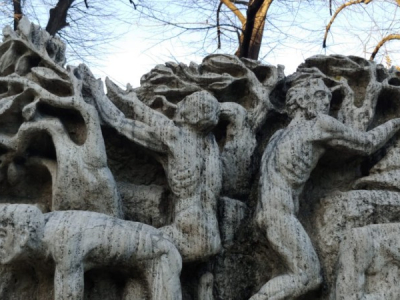
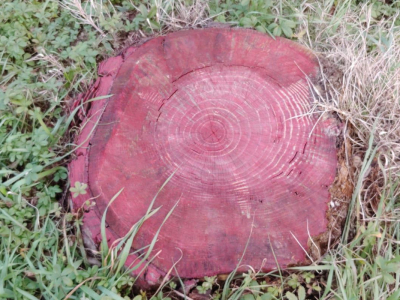
 « Words are essential and effective only when they are born out of silence. Silence opens the inner source from which words spring forth »
« Words are essential and effective only when they are born out of silence. Silence opens the inner source from which words spring forth »
 «I beg you: God, dreamer of mine, continue to dream about me»
«I beg you: God, dreamer of mine, continue to dream about me»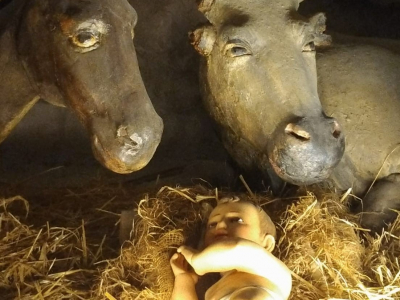
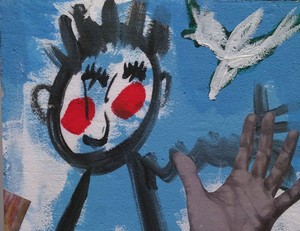 «E forse pace avremo
«E forse pace avremo
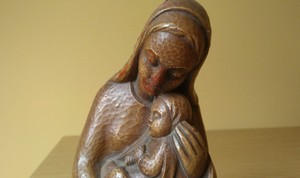 “Evil gossip kills three: the one who says it, the one who listens, and the subject of the gossip; but it does more harm to the one who listens to it than the one who says it.”
“Evil gossip kills three: the one who says it, the one who listens, and the subject of the gossip; but it does more harm to the one who listens to it than the one who says it.” “By seeking the beginnings of things, a man becomes a crab. The historian looks backwards: in the end he also believes backwards.”
“By seeking the beginnings of things, a man becomes a crab. The historian looks backwards: in the end he also believes backwards.”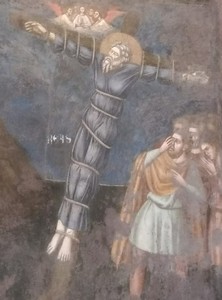 “But there remains always this paradoxical fact (...) that it is the sacred that is manifesting, and thereby limiting itself and ceasing to be absolute. (...) this is the great mystery, the mysterium tremendum: the fact that the sacred accepted self-limitation.”
“But there remains always this paradoxical fact (...) that it is the sacred that is manifesting, and thereby limiting itself and ceasing to be absolute. (...) this is the great mystery, the mysterium tremendum: the fact that the sacred accepted self-limitation.”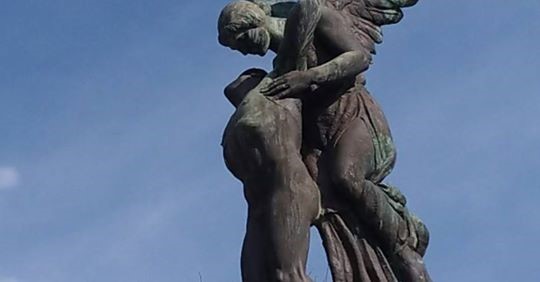 "Are there no more prophets? We can't say that; the important thing is to distinguish false prophets from the true ones, and this applies to all eras. Perhaps the fundamental element to distinguish them is this: the false prophet feels like a prophet and the true prophet doesn't feel like a prophet".
"Are there no more prophets? We can't say that; the important thing is to distinguish false prophets from the true ones, and this applies to all eras. Perhaps the fundamental element to distinguish them is this: the false prophet feels like a prophet and the true prophet doesn't feel like a prophet".